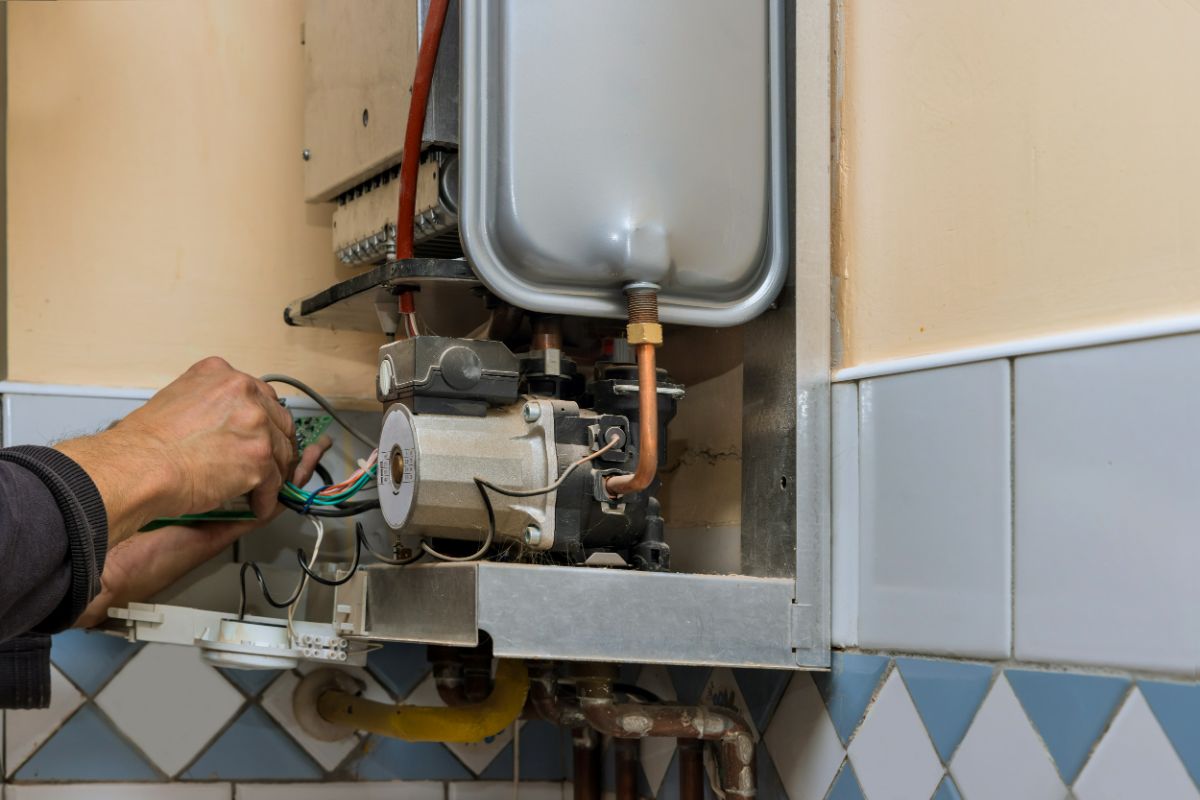Effective Strategies for Maintaining Your Home's Hot Water SystemHow to Maintain Your Home's Hot Water System Properly
Call TodayAre you in search of information around How to Maintain a Hot Water Heater in a Few Simple Steps?

Hot water is vital for day-to-day comfort, whether it's for a revitalizing shower or cleaning dishes. To guarantee your warm water system runs effectively and lasts much longer, regular maintenance is crucial. This post gives sensible ideas and insights on exactly how to keep your home's hot water system to prevent disturbances and costly repair work.
Intro
Maintaining your home's hot water system might seem overwhelming, but with a few basic actions, you can guarantee it operates efficiently for many years to find. This overview covers every little thing from understanding your hot water system to do it yourself upkeep tips and knowing when to call in expert assistance.
Significance of Maintaining Your Hot Water System
Regular maintenance not just prolongs the life expectancy of your hot water system but also guarantees it runs effectively. Neglecting upkeep can cause reduced effectiveness, higher energy bills, and even early failing of the system.
Indications Your Hot Water System Requirements Maintenance
Knowing when your hot water system requires focus can protect against major concerns. Keep an eye out for indications such as inconsistent water temperature, strange sounds from the heating unit, or rustic water.
Understanding Your Warm Water System
Prior to diving right into upkeep tasks, it's useful to recognize the fundamental components of your warm water system. Normally, this includes the water heater itself, pipelines, anode rods, and temperature controls.
Month-to-month Upkeep Tasks
Normal month-to-month checks can help catch minor issues prior to they rise.
Purging the Hot Water Heater
Flushing your water heater removes debris accumulation, enhancing performance and lengthening its life.
Monitoring and Replacing Anode Rods
Anode rods protect against deterioration inside the tank. Evaluating and changing them when broken is critical.
Evaluating and Changing Temperature Settings
Adjusting the temperature level setups guarantees optimal efficiency and security.
Do It Yourself Tips for Upkeep
You can perform numerous upkeep jobs yourself to maintain your hot water system in top problem.
Checking for Leakages
Frequently inspect pipelines and connections for leakages, as these can lead to water damage and greater expenses.
Testing Stress Relief Valves
Examining the stress relief valve ensures it operates appropriately and stops extreme stress accumulation.
Insulating Pipelines
Protecting hot water pipelines decreases warmth loss and can conserve power.
When to Call an Expert
While DIY maintenance is beneficial, some concerns require specialist competence.
Complex Concerns Requiring Specialist Assistance
Instances include significant leaks, electrical problems, or if your hot water heater is consistently underperforming.
Routine Specialist Maintenance Perks
Professional upkeep can consist of thorough evaluations, tune-ups, and making certain compliance with safety and security standards.
Verdict
Regular upkeep of your home's hot water system is important for effectiveness, long life, and cost savings. By complying with these tips and understanding when to look for specialist aid, you can ensure a dependable supply of hot water without unforeseen disturbances.
How to Maintain and Troubleshoot Your Heat Pump Water Heater
Know Your Water Heaters Error Codes and How to Clear Them
If your unit is WiFi-enabled, pay attention to the notifications your water heater system sends you and make sure to read and investigate error codes as soon as possible. If your machine has an error code readout on the unit, use your owner’s manual for the hot water heater and find out what the codes mean and how they might be affecting your water heating system. Follow the manufacturer’s directions to assess the issue and clear the code, or call a licensed plumber to take care of that for you.
Change Your Filters Monthly or As-Needed
Heat pump water heaters come equipped with an air filter, usually on the top of the unit where the water heater pulls air into the compressor. Check the filter every few months (put a reminder in your smartphone to make sure you don’t forget!). This will keep peak air flowing into your unit, helping it to work as efficiently as possible and resulting in energy savings over time.
Clean the Condensate Lines
Heat pump water heaters have a condensate drain. As the unit dehumidifies the surrounding area, the moisture has to go somewhere! Make sure to clean this condensate line every year to ensure it doesn’t get backed up with sediment or mold.
To clean the condensate lines, pour a cup of bleach in the access opening of the unit to kill any mold or mildew. Check that the bleach or water flows freely out of the lines, and unclog the lines if needed.
Flush Your Heat Pump Water Heater Annually
Heat pump water heaters are also sometimes referred to as hybrid heat pump water heaters. This is because they contain a backup heating electric heating element inside the tank: the same kind of anode rods used in traditional electric water heaters. That anode rod can become corroded over time from the minerals in your water, and it can begin to decay, break entirely, or heat less efficiently as it becomes corroded. One way to minimize or avoid this corrosion is by flushing your heat pump water heater annually. Just like flushing standard electric or gas water heaters, flushing your water heater is something that any homeowner can DIY if they have a few basic tools and some gumption.
https://www.waterheatersnow.com/blog/how-to-maintain-and-troubleshoot-your-heat-pump-water-heater

I recently found that piece of writing on How to Maintain a Hot Water Heater in a Few Simple Steps when perusing the search engines. Do you know somebody else who is fascinated with the subject? Please feel free to share it. Many thanks for your time. Please come by our site back soon.
Estimate